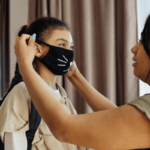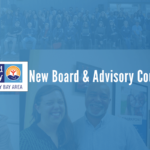Search
Surviving Invisible Chains
October 14, 2022
How Economic Abuse Contributes to the Cycle of Poverty

“I wanted to leave for years, but I wasn’t allowed to work or have my own money – I had an allowance and no savings – so if I left, where would we live? How would I support my children? I didn’t see a way out, so I stayed.”
United Way Bay Area’s commitment to dismantling the root causes of poverty includes addressing the ways intimate partner violence (IPV) both drives poverty in our communities and keeps victims and survivors trapped in the cycle of abuse. In recognition of Domestic Violence Awareness month, and as a survivor of intimate partner violence myself, I want to shed light on an often invisible yet incredibly common set of chains which can hold back survivors like me: economic abuse.
Economic abuse is a tactic used by abusers to maintain control over their victim by limiting their financial autonomy. This is done in many ways, often simultaneously. Here are some examples:
- Preventing educational attainment, employment, and access to money
- Controlling existing resources and hiding financial information
- Depleting and controlling access to resources when the victim attempts to leave the relationship
Abusers may have ruined the victim’s credit score, racked up debt in their name, and diverted funds to accounts a victim cannot access by the time they are ready to leave. Any of these can create long-term barriers to financial stability and keep victims trapped in unsafe relationships.
Economic abuse is so common, it occurs in 99% of IPV cases. In fact, three out of four victims report they stayed with their abuser for economic reasons and among victims who returned to their abuser, 85% reported that they did so because of finances. Those who leave often face food insecurity, are more likely to work in low-wage jobs, struggle to access safe and affordable housing, and may have significant legal and medical expenses related to the abuse in addition to coping with trauma.
I have lived this first-hand, and the experience has shaped the way I approach policies and programs that address poverty in my work. Like so many survivors, initially my partner’s offers to take over managing the finances and have me leave my job to be home with my child seemed loving and protective. What was disguised as “help” turned out to be a trap designed to keep me in an abusive relationship for six years. I lost access to our bank accounts when I wasn’t earning an income, then I received an allowance which my partner controlled. I was not allowed to return to work or finish my degree. My car, the only asset I owned, was sold to purchase a car that was only in my partner’s name- and no assets were put in my name after that.
I was isolated and dependent on my abuser, who would tell me that if I left, I would have nothing and I would lose my children. I worried about losing my apartment, feeding my children, and going to court when I had no resources to support us- so I stayed. Unfortunately, I’m not alone in this experience. Among victims who returned to their abusers, 85% said they did so because of financial need.
My path out of abuse and into financial autonomy started when I chose to leave, sought help from the local DV organization, and found SparkPoint, powered by United Way Bay Area. I needed community support to succeed in finding safety, stability, and ultimately my freedom. At SparkPoint, I was able to get free groceries every week and rental assistance to meet my family’s basic needs. I was provided with financial and employment coaching while I attended community college, which allowed me to build a new life for myself and my kids. Today, I am in control of my finances, I have a career that I am passionate about, and I have created the safe and peaceful home that my family needs.
As an anti-poverty organization, United Way Bay Area knows that lifting people up and giving them the tools to achieve stable housing, quality jobs, affordable childcare, and economic prosperity is, for many, a path to freedom. The research shows us that for those experiencing abuse, this is especially true. As we contemplate ways to eradicate abuse in our communities this month, let us shift from asking “why don’t you leave?” to “what do you need to leave?” – creating pathways towards safety and self-sufficiency and intervening to end the intertwined cycles of abuse and poverty.
If you or someone you love is experiencing a controlling relationship, please reach out to the Domestic Violence Hotline at 800.799.SAFE (7233) for support or visit the National Domestic Violence website.


